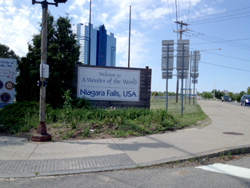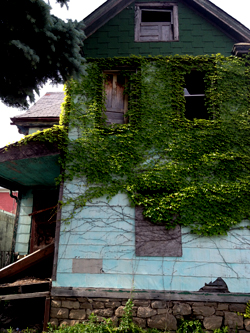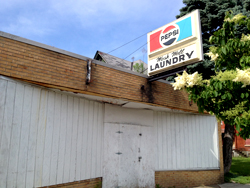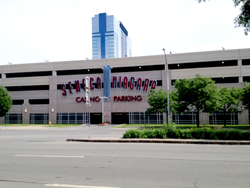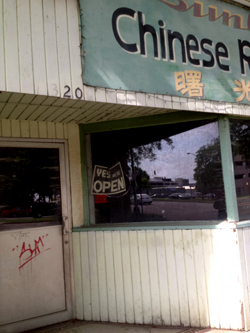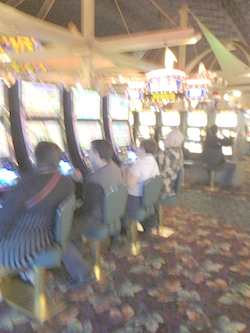Casino Compact Extension Shortchanges City
By Lori Lane
Do you like crumbs, you losers?
Yes, you do, you know you do.
Governor Andrew Cuomo swung into Niagara Falls Thursday, June 13 to announce a casino cash settlement had been reached and that the settlement meant the city was going to receive $89 million.This long-awaited good news drowned out a critical byproduct of the State/Seneca agreement: the Seneca casino compact was extended an additional 10 years as part of the settlement.
Seneca President Barry Snyder, Governor Cuomo and Mayor Dyster took turns at the media event detailing how pleased they were at the outcome. To a man, they talked how they had worked hard, had their ups and downs, but hung in there to get the deal they now proudly trotted out to the public.
They happily posed in a photo “three-way,” hands raised and clasped together in unity. It almost brought a tear to the eye. Mayor Dyster quickly posted the three-way shot as his latest Facebook photo.
What none of the three men took the time to explain in any detail was that the Governor had unilaterally agreed to extend the Seneca casino compact with zero input from the city of Niagara Falls, the “host community.”
“One of the reasons I ran for city council was to make sure our residents had a voice when the casino compact expired and had to be redrawn,” said City Council Chairman, Glenn Choolokian. “I wanted to go to bat for our city and I wanted to get a better percentage from the state’s share of the slot machine drop. For the life of me I can’t see how the state could just extend the compact with no input from the city. How did this happen? Where was Mayor Dyster when it did happen?”
In a June 14 Gazette story by Justin Sondel, Mayor Dyster described the settlement as “one of the happiest days of my life, and, I’m sure for the city of Niagara Falls.”
But is it?
Will it prove to be such a happy day for the city when the reality of a new and unadjusted casino compact takes hold in the public’s consciousness?
After all, a lot of people have been troubled by the initial compact, as it was rammed down the community’s throat by the state in 2002. “We’ll get our say next time and we’ll adjust those state payout numbers” has been the mantra by many in the community since 2002.
“It looks to me like the ‘good news’ of the $89 million distorted the reality of the overall settlement,” said City Councilman Sam Fruscione. “Sure, we’re getting what was owed to us, but how did the agreement get extended with not so much as a heads up from Albany? This isn’t right and I’m wondering if it’s legal.”
People are also wondering if Mayor Dyster knew at any time along the way that the compact was going to be given 10 more years of life as his city was locked out of having any say in the matter. Did the Mayor sign off on the compact extension and not tell us? Did the governor arrange the extension by himself and tell Dyster to sit quietly behind the curtains (to use a Dyster metaphor) while he arranged it with Seneca President Snyder?
The slowly awakening (but awakening they are) city residents want answers to these questions. So far Mayor Dyster has said nothing to add clarity to the matter.
The agreement was announced on Thursday June 13 and Dyster hit the road the very next morning on a whirlwind victory media tour. For the next several days, the mayor repeated two points to anyone who would listen: 1) he had played a key role in the settlement, and 2) he had been correct in maintaining a patient wait-and-see attitude.
Dyster can’t have it both ways: either he was key to the settlement and knew what was in it, or he is misleading us and didn’t have a clue about what was going on as he blindly sought the $89 million at all costs.
“The state gives away 52 of our prime downtown acres to the Seneca and then blocks us from participating in the 2002 compact negotiations,” said Choolokian. “Then the state picks a pointless fight with the Seneca and Niagara Falls, gets hammered financially for four years, then Governor Cuomo admits he was wrong in the first place on the casinos, and secretly extends the compact with not so much as a phone call to ask us what we think about all of this. Our residents are just beginning to grasp what the state has done here. We’re pleased to see the $89 million settlement, but at what eventual cost to the city was that settlement reached?”
Niagara Falls once again finds itself on the short end of a very muddy state stick and questions are being asked: what did the mayor know and when did he know it? City residents are also curious to learn what roles Senator Maziarz and Assemblyman Ceretto played in the covert compact extension, an extension that takes the casino compact as currently written an additional decade into Niagara Falls’ troubled future.
Ceretto, when contacted by the Reporter, said the governor is the "chief negotiator" for the state.
"I support the governor in this matter," Ceretto said, "We won some things and we lost some things. It's insignificant right now. I support the governor and what he did. … It is difficult to second guess someone who is in the room (negotiating)."
As to whether or not extending the compact is a good or bad thing for Niagara Falls, Ceretto said, "We will find out the real answer in the future."
For 10 years, the Seneca Nation has been devouring the city. It has a monopoly on gaming and the ability to open up tax-free stores, restaurants, hotels, smoke shops and, if they wish, gas stations, while taxpayers in Niagara Falls are among the highest-taxed people in the country and among the poorest.
The modern history of Niagara Falls is one of Albany and New York City stealing, pilfering and leaving crumbs to petty rascals to distribute among the rest. The result is a city that should be rich, but is broke.
Compared to the $1 million per day the Senecas net every day of the year, $89 million given to Niagara Falls is equal to less than three months profits over four years.
In other words: crumbs.
The compact has been extended when it should have been discussed as to whether it should have been canceled or at least improved upon for the city.
Thanks to the governor and the void in leadership of our elected representatives, we will not get that chance.
Enjoy the crumbs, suckers.
